|
Books Should Be Free Loyal Books Free Public Domain Audiobooks & eBook Downloads |
|
|
Books Should Be Free Loyal Books Free Public Domain Audiobooks & eBook Downloads |
|
Poetry |
|---|
|
Book type:
Sort by:
View by:
|
By: Alfred Noyes (1880-1958) | |
|---|---|
 Drake
Drake
Alfred Noyes, in the blank-verse epic "Drake", fictionalizes the historical Francis Drake, who, during the reign of Elizabeth I of England, sailed (and plundered) on the Spanish Main and beyond. | |
 The Lord of Misrule And Other Poems
The Lord of Misrule And Other Poems
| |
By: William Dean Howells (1837-1920) | |
|---|---|
 The Daughter of the Storage And Other Things in Prose and Verse
The Daughter of the Storage And Other Things in Prose and Verse
| |
 Poems
Poems
| |
By: Carl Sandburg (1878-1967) | |
|---|---|
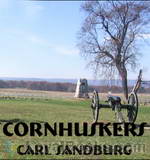 Cornhuskers
Cornhuskers
Carl Sandburg’s collection of 103 poems that earned a Pulitzer Prize Special Letters Award in 1919. | |
By: Hilaire Belloc (1870-1953) | |
|---|---|
 Cautionary Tales for Children
Cautionary Tales for Children
| |
By: Bret Harte (1836-1902) | |
|---|---|
 What the Wolf Really Said to Little Red Riding Hood
What the Wolf Really Said to Little Red Riding Hood
Francis Bret Harte was an American author and poet, best remembered for his short fiction featuring miners, gamblers, and other romantic figures of the California Gold Rush. In a career spanning more than four decades, he wrote poetry, fiction, plays, lectures, book reviews, editorials, and magazine sketches in addition to fiction. As he moved from California to the eastern U.S. to Europe, he incorporated new subjects and characters into his stories, but his Gold Rush tales have been most often reprinted, adapted, and admired. | |
 Excelsior
Excelsior
| |
By: William McGonagall (1825-1902) | |
|---|---|
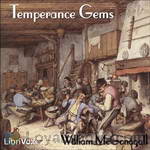 Temperance Gems
Temperance Gems
Good people all, of every degree,I pray, ye all be warned by me:I advise ye all to pause and think,And never more to taste strong drink. Some people do say it is good when taken in moderation,But, when taken to excess, it leads to tribulation,Also to starvation and loss of reputation,Likewise your eternal soul’s damnation. McGonagall has been widely acclaimed as the worst poet in British history. He campaigned vigorously against excessive drinking, appearing in pubs and bars to give edifying poems and speeches... | |
By: G. K. Chesterton (1874-1936) | |
|---|---|
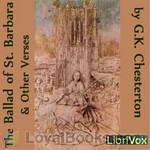 The Ballad of St. Barbara and Other Verses
The Ballad of St. Barbara and Other Verses
This book of poetry by G.K. Chesterton, originally published in 1922, contain 35 poems on a variety of subjects. | |
By: Hopkins, Gerard Manley (1844-1889) | |
|---|---|
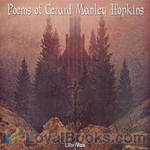 Poems of Gerard Manley Hopkins, ed. Robert Bridges
Poems of Gerard Manley Hopkins, ed. Robert Bridges
Gerard Manley Hopkins (1844–89) was an English poet, educated at Oxford. Entering the Roman Catholic Church in 1866 and the Jesuit novitiate in 1868, he was ordained in 1877. Upon becoming a Jesuit he burned much of his early verse and abandoned the writing of poetry. However, the sinking in 1875 of a German ship carrying five Franciscan nuns, exiles from Germany, inspired him to write one of his most impressive poems “The Wreck of the Deutschland.” Thereafter he produced his best poetry, including “God’s Grandeur,” “The Windhover,” “The Leaden Echo,” and “The Golden Echo.” | |
By: Sophocles (495-406 BC) | |
|---|---|
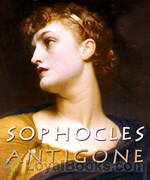 Antigone
Antigone
This is the final installment in Sophocles's Theban Plays, following Oedipus Rex and Oedipus at Colonus. Oedipus's daughter Antigone deliberately breaks the laws of Thebes when she buries her brother's body and is sentenced to death. She clashes with Creon, the King of Thebes, over what constitutes justice and morality: the laws of the state or the laws of the individual. | |
By: William Ross Wallace (1819-1881) | |
|---|---|
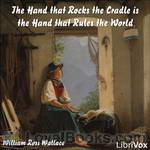 The Hand that Rocks the Cradle is the Hand that Rules the World
The Hand that Rocks the Cradle is the Hand that Rules the World
For Mother’s Day 2006, we’ve recorded five versions of this tribute to Mothers and their role in shaping the future. The title is very famous out of its context, but now you can hear how it was originally intended. | |
By: Christopher Morley (1890-1957) | |
|---|---|
 Mince Pie
Mince Pie
Mince Pie is a compilation of humorous sketches, poetry, and essays written by Christopher Morley. Morley sets the tone in the preface: "If one asks what excuse there can be for prolonging the existence of these trifles, my answer is that there is no excuse. But a copy on the bedside shelf may possibly pave the way to easy slumber. Only a mind "debauched by learning" (in Doctor Johnson's phrase) will scrutinize them too anxiously." | |
 Songs for a Little House
Songs for a Little House
| |
By: John Greenleaf Whittier | |
|---|---|
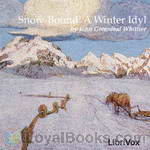 Snow-Bound: A Winter Idyl
Snow-Bound: A Winter Idyl
A 750-line idyllic poem about a snow-storm from the narrator’s childhood. | |
 Snow-Bound A Winter Idyll
Snow-Bound A Winter Idyll
| |
 Christmas Carmen
Christmas Carmen
John Greenleaf Whittier was an American Quaker poet and advocate of the abolition of slavery in the United States. Frequently listed as one of the Fireside Poets, Whittier was influenced by the Scottish poet Robert Burns. | |
 The Works of Whittier, Volume III (of VII) Anti-Slavery Poems and Songs of Labor and Reform
The Works of Whittier, Volume III (of VII) Anti-Slavery Poems and Songs of Labor and Reform
| |
 Anti-Slavery Poems I. From Volume III., the Works of Whittier: Anti-Slavery Poems and Songs of Labor and Reform
Anti-Slavery Poems I. From Volume III., the Works of Whittier: Anti-Slavery Poems and Songs of Labor and Reform
| |
 Anti-Slavery Poems III. From Volume III., the Works of Whittier: Anti-Slavery Poems and Songs of Labor and Reform
Anti-Slavery Poems III. From Volume III., the Works of Whittier: Anti-Slavery Poems and Songs of Labor and Reform
| |
 Songs of Labor and Reform From Volume III., the Works of Whittier: Anti-Slavery Poems and Songs of Labor and Reform
Songs of Labor and Reform From Volume III., the Works of Whittier: Anti-Slavery Poems and Songs of Labor and Reform
| |
 Anti-Slavery Poems II. From Volume III., the Works of Whittier: Anti-Slavery Poems and Songs of Labor and Reform
Anti-Slavery Poems II. From Volume III., the Works of Whittier: Anti-Slavery Poems and Songs of Labor and Reform
| |
By: C. J. Dennis (1876-1938) | |
|---|---|
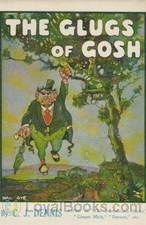 The Glugs of Gosh
The Glugs of Gosh
First published in 1917, The Glugs of Gosh satirizes Australian life at the start of the twentieth century – but the absurdities it catalogs seem just as prevalent at the start of the twenty-first. The foolishness of kings, the arrogance of the elite, the gullibility of crowds, the pride of the self-righteous, the unthinking following of tradition – all find themselves the targets of C. J. Dennis’ biting wit. | |
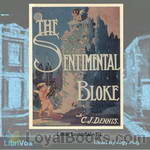 The Songs of a Sentimental Bloke
The Songs of a Sentimental Bloke
The Songs of a Sentimental Bloke is a verse novel by Australian novelist and poet C. J. Dennis. The book sold over 60,000 copies in nine editions within the first year, and is probably one of the highest selling verse novels ever published in Australia.The novel tells the story of Bill, a larrikin of the Little Lonsdale Street Push, who is introduced to a young woman by the name of Doreen. The book chronicles their courtship and marriage, detailing Bill’s transformation from a violence-prone gang member to a contented husband and father. C.J. Dennis went on to publish three sequels to this novel: The Moods of Ginger Mick (1916), Doreen (1917) and Rose of Spadgers (1924) | |
By: Luis Vaz de Camões (1524-1580) | |
|---|---|
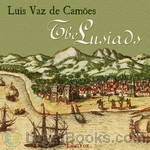 The Lusiads
The Lusiads
The Lusiads (Os Lusíadas) is a Portuguese epic poem, written in the 16th century by Luis Vaz de Camões. The poem tells the tale of the Portuguese discoveries in the 15th and 16th centuries, specially the voyage to India by Vasco da Gama. Modelled after the classic epic tradition, Camões' Lusiads are considered not only the first literary text in Modern Portuguese, but also a national epic of the same level as Vergil's Aeneid. In the 19th century, Sir Richard Francis Burton translated Camões' Lusiads, in what he considered "the most pleasing literary labour of his life". | |
By: G. K. Chesterton (1874-1936) | |
|---|---|
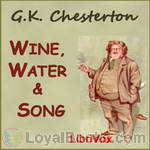 Wine, Water and Song
Wine, Water and Song
A collection of 16 poems by G.K. Chesterton. All of the poems in this book, except for "The Strange Ascetic" are taken from "The Flying Inn", a book by the same author. | |
 Wild Knight and Other Poems
Wild Knight and Other Poems
A collection of poems that tend to revolve around the theme of the wonder of the world. It includes the short, poetic play, "The Wild Knight". | |
 Greybeards at Play
Greybeards at Play
G.K. Chesterton's first publication, "Greybeards at Play" is a collection of poetry and accompanying illustrations. The work is marked by the irreverent whimsy and ancient delight that would eventually be recognized as Chesterton's signature style. Short (only four poems long and a dedication), playful, and with a touch of awe, Chesterton's first piece (written at 26) is appropriately titled: it is the work of an amateur, mature in his spirit, young in his play. - | |
By: Rupert Brooke | |
|---|---|
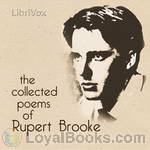 Collected Poems of Rupert Brooke
Collected Poems of Rupert Brooke
Rupert Chawner Brooke (August 3, 1887 – April 23, 1915) was an English poet known for his idealistic War Sonnets written during the First World War (especially The Soldier), as well as for his poetry written outside of war, especially The Old Vicarage, Grantchester and The Great Lover. He was also known for his boyish good looks, which prompted the Irish poet William Butler Yeats to describe him as “the handsomest young man in England”. | |
By: Publius Ovidius Naso | |
|---|---|
 Metamorphoses
Metamorphoses
The Metamorphoses of Ovid is probably one of the best known, certainly one of the most influential works of the Ancient world. It consists of a narrative poem in fifteen books that describes the creation and history of the world through mythological tales, starting with a cosmogony and finishing with the deification of Julius Caesar. Published around 8 AD, the Metamorphoses are a source, sometimes the only source, for many of the most famous ancient myths, such as the stories of Daedalus and Icarus, Arachne or Narcisus... | |
By: George William Russell (1867-1935) | |
|---|---|
 The Nuts of Knowledge Lyrical Poems Old and New
The Nuts of Knowledge Lyrical Poems Old and New
| |
By: Bliss Carman | |
|---|---|
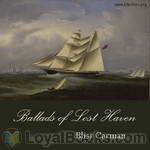 Ballads of Lost Haven: A Book of the Sea
Ballads of Lost Haven: A Book of the Sea
This collection of lyric poems evokes the sea in every line, from birth (A Son of the Sea) to death (Outbound). The smells, sights and sounds of the Canada's East Coast feature prominently. | |
By: Henry Wadsworth Longfellow (1807-1882) | |
|---|---|
 Rainy Day
Rainy Day
MANUAL OF SURGERY, OXFORD MEDICAL PUBLICATIONSBY ALEXIS THOMSON, F.R.C.S.Ed.PREFACE TO SIXTH EDITION Much has happened since this Manual was last revised, and many surgical lessons have been learned in the hard school of war. Some may yet have to be unlearned, and others have but little bearing on the problems presented to the civilian surgeon. Save in its broadest principles, the surgery of warfare is a thing apart from the general surgery of civil life, and the exhaustive literature now available on every aspect of it makes it unnecessary that it should receive detailed consideration in a manual for students... | |
By: Kabir (1440-1518) | |
|---|---|
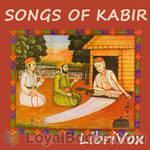 Songs of Kabir
Songs of Kabir
Kabir (1440 - 1518) was a mystic poet and saint of India, whose writings have greatly influenced the Bhakti movement.The name Kabir comes from Arabic Al-Kabir which means 'The Great' - the 37th Name of God in the Qur'an.Kabir was influenced by the prevailing religious mood of his times, such as old Brahmanic Hinduism, Hindu and Buddhist Tantrism, the teachings of Nath yogis and the personal devotionalism of South India mixed with the imageless God of Islam. The influence of these various doctrines is clearly evident in Kabir's verses... | |
By: Robert Williams Wood (1868-1955) | |
|---|---|
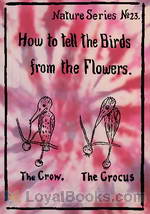 How to Tell the Birds from the Flowers
How to Tell the Birds from the Flowers
How do you tell apart a parrot from a carrot? A plover from a clover? A bay from a jay? Although there are several ways of differentiating, R. W. Wood’s use of pun and rhyme is one of the most entertaining! | |
By: Christopher Marlowe (1564-1593) | |
|---|---|
 Hero and Leander
Hero and Leander
“Who ever lov’d, that lov’d not at first sight?” The wonder-decade of the English drama was suddenly interrupted in 1592, when serious plague broke out in London, forcing the closure of the theatres. Leading playwrights took to penning languorously erotic poetry to make ends meet: so we have Venus and Adonis, The Rape of Lucrece - and Marlowe’s blazing masterpiece, Hero and Leander. Marlowe’s poem became more notorious than either of Shakespeare’s, due not only to its homophile provocations but also to the scandal attaching to every aspect of Marlowe’s brief life, violently ended in a mysterious brawl, leaving the poem in an unfinished state... | |
 The Works of Christopher Marlowe, Vol. 3 (of 3)
The Works of Christopher Marlowe, Vol. 3 (of 3)
| |
By: Robert Burton (1577-1640) | |
|---|---|
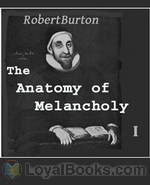 The Anatomy of Melancholy
The Anatomy of Melancholy
The Anatomy of Melancholy is a book by Robert Burton, first published in 1621. On its surface, the book is a medical textbook in which Burton applies his large and varied learning in the scholastic manner to the subject of melancholia (which includes what is now termed clinical depression). Though presented as a medical text, The Anatomy of Melancholy is as much a sui generis work of literature as it is a scientific or philosophical text, and Burton addresses far more than his stated subject. In... | |
By: Siegfried Sassoon (1886-1967) | |
|---|---|
 Counter-Attack and Other Poems
Counter-Attack and Other Poems
| |
By: George Pope Morris (1802-1864) | |
|---|---|
 Will Nobody Marry Me?
Will Nobody Marry Me?
In addition to his publishing and editorial work, Morris was popular as a poet and songwriter; especially well-known was his poem-turned-song "Woodman, Spare that Tree!" His songs in particular were popular enough that Graham's Magazine in Philadelphia promised Morris $50, sight unseen, for any work he wanted to publish in the periodical. | |
By: Sir Walter Scott (1771-1832) | |
|---|---|
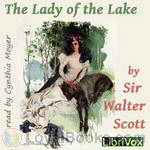 The Lady of the Lake
The Lady of the Lake
The scene of the following Poem is laid chiefly in the vicinity of Loch Katrine, in the Western Highlands of Perthshire. The time of Action includes Six Days, and the transactions of each Day occupy a Canto. | |
By: Brontë sisters | |
|---|---|
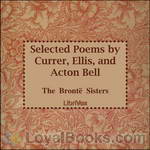 Selected Poems by Currer, Ellis and Acton Bell
Selected Poems by Currer, Ellis and Acton Bell
Poems by Currer, Ellis and Acton Bell was a volume of poetry published jointly by the three Bronte sisters, Charlotte, Emily and Anne in 1846, and their first work to ever go in print. To evade contemporary prejudice against female writers, the Bronte sisters adopted androgynous first names. Marked by profound sentiments, gravity and melodious harmony, the poems are strewn on the fields of soulful love, rueful reminiscence and the immortal yearnings of a Christian soul, and represent a fragrant assemblage of noetic flowers from the glebes of olden England... | |
By: Gerard Nolst Trenité | |
|---|---|
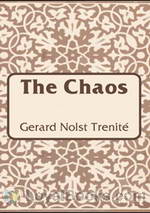 The Chaos
The Chaos
“The Chaos” is a poem which demonstrates the irregularity of English spelling and pronunciation, written by Gerard Nolst Trenité (1870-1946), also known under the pseudonym Charivarius. It first appeared in an appendix to the author’s 1920 textbook Drop Your Foreign Accent: engelsche uitspraakoefeningen. | |
By: Sir Walter Raleigh (1552-1618) | |
|---|---|
 A selection of poems by Sir Walter Raleigh
A selection of poems by Sir Walter Raleigh
Sir Walter Raleigh (c. 1552 – 29 October 1618) was an English aristocrat, writer, poet, soldier, courtier, spy, and explorer. He is also well known for popularising tobacco in England.Raleigh's poetry is written in the relatively straightforward, unornamented mode known as the plain style. C. S. Lewis considered Raleigh one of the era's "silver poets", a group of writers who resisted the Italian Renaissance influence of dense classical reference and elaborate poetic devices.In poems such as "What is Our Life" and "The Lie", Raleigh expresses a contemptus mundi (contempt of the world) attitude more characteristic of the Middle Ages than of the dawning era of humanistic optimism... | |
By: Ruth Edna Kelley | |
|---|---|
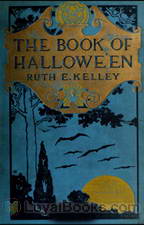 The Book of Hallowe'en
The Book of Hallowe'en
This book is intended to give the reader an account of the origin and history of Hallowe’en, how it absorbed some customs belonging to other days in the year,—such as May Day, Midsummer, and Christmas. The context is illustrated by selections from ancient and modern poetry and prose, related to Hallowe’en ideas. | |
By: Edward Thomas (1878-1917) | |
|---|---|
 Last Poems
Last Poems
| |
By: James Russell Lowell (1819-1891) | |
|---|---|
 The Biglow Papers
The Biglow Papers
| |
 The Vision of Sir Launfal And Other Poems
The Vision of Sir Launfal And Other Poems
| |
By: Lord George Gordon Byron (1788-1824) | |
|---|---|
 Childe Harold's Pilgrimage: Canto IV
Childe Harold's Pilgrimage: Canto IV
Childe Harold's Pilgrimage is a lengthy narrative poem in four parts written by Lord Byron. It was published between 1812 and 1818 and is dedicated to "Ianthe". The poem describes the travels and reflections of a world-weary young man who, disillusioned with a life of pleasure and revelry, looks for distraction in foreign lands. In a wider sense, it is an expression of the melancholy and disillusionment felt by a generation weary of the wars of the post-Revolutionary and Napoleonic eras. The title comes from the term childe, a medieval title for a young man who was a candidate for knighthood. Canto IV describes Harold's travels in Italy. | |
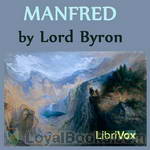 Manfred
Manfred
Manfred is a dramatic poem in three acts by Lord Byron, and possibly a self confessional work. A noble, Manfred, is haunted by the memory of some unspeakable crime. In seeking for forgetfulness and oblivion, he wanders between his castle and the mountains. He has several encounters with the people who try to assist him, as well as spirits that rule nature and human destiny. The poem explores themes of morality, religion, guilt and the human condition. | |
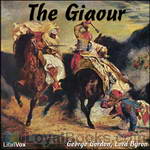 The Giaour
The Giaour
"The Giaour" is a poem by Lord Byron first published in 1813 and the first in the series of his Oriental romances. "The Giaour" proved to be a great success when published, consolidating Byron's reputation critically and commercially. | |
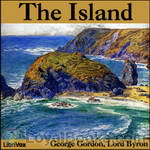 The Island
The Island
Written late in his career, Byron's narrative poem The Island tells the famous story of the mutiny on board the Bounty, and follows the mutineers as they flee to a South Sea island, "their guilt-won Paradise." | |
 The Works of Lord Byron. Vol. 2
The Works of Lord Byron. Vol. 2
| |
By: Gertrude Stein (1874-1946) | |
|---|---|
 Tender Buttons
Tender Buttons
The time came when there was a birthday. Every day was no excitement and a birthday was added, it was added on Monday, this made the memory clear, this which was a speech showed the chair in the middle where there was copper. A kind of green a game in green and nothing flat nothing quite flat and more round, nothing a particular color strangely, nothing breaking the losing of no little piece. The teasing is tender and trying and thoughtful. Extracts from Tender Buttons. | |
 Geography and Plays
Geography and Plays
Geography and Plays is a 1922 collection of Gertrude Stein's "word portraits," or stream-of-consciousness writings. These stream-of-consciousness experiments, rhythmical essays or "portraits", were designed to evoke "the excitingness of pure being" and can be seen as literature's answer to Cubism, plasticity, and collage. Although the book has been described as "a marvellous and painstaking achievement in setting down approximately 80,000 words which mean nothing at all," it is considered to be one of Stein's seminal works. | |
By: Sir Philip Sidney (1554-1586) | |
|---|---|
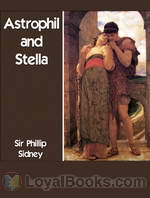 Astrophil and Stella
Astrophil and Stella
Astrophil and Stella is a sonnet sequence written by Philip Sidney, an Elizabethan poet and courtier. It details the frustrated love of Astrophil (whose name means “star-lover”) for his beloved Stella (whose name means “star”). It is likely that Sidney based his poems on his own unrequited passion for a married woman. The sequence inspired other sonnet writers of the period, such as Edmund Spenser, William Shakespeare, and Lady Mary Wroth. | |
By: James Stephens | |
|---|---|
 There is a Tavern in the Town
There is a Tavern in the Town
The soul of Irish wit is captured in this unique tale of a barstool philosopher, the concluding story from 'Here Are Ladies' by James Stephens. (Introduction by iremonger) | |
By: Leolyn Louise Everett (1888-1971) | |
|---|---|
 Sleep-Book
Sleep-Book
This is a compilation and publication of sleep-related poetry, exalting the delight of sleep, as well as bemoaning the lack of it. (written by Clarica) | |
By: Stephen Vincent Benét (1898-1943) | |
|---|---|
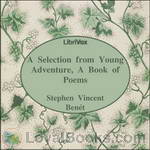 A Selection from Young Adventure, A Book of Poems
A Selection from Young Adventure, A Book of Poems
Stephen Vincent Benét (July 22, 1898 – March 13, 1943) was an American author, poet, short story writer and novelist. He is best known for his book-length narrative poem of the American Civil War, John Brown’s Body (1928), for which he won a Pulitzer Prize in 1929, and for two short stories, “The Devil and Daniel Webster” and “By the Waters of Babylon”. It was a line of Benét’s poetry that gave the title to Dee Brown’s famous history of the destruction of Native American tribes by the United States: Bury My Heart at Wounded Knee. | |
By: Jewish Publication Society of America | |
|---|---|
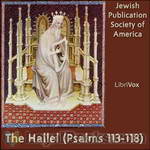 The Hallel (Psalms 113-118)
The Hallel (Psalms 113-118)
Hallel (Hebrew: הלל “Praise [God]“) is part of Judaism’s prayers, a verbatim recitation from Psalms 113-118, which is used for praise and thanksgiving that is recited by observant Jews on Jewish holidays. Summary from WikipediaRead by Délibáb, D.E. Wittkower, Jc Guan, Katie Gibboney, Leon Mire, and Scott Sherris | |
By: Thomas Bailey Aldrich (1836-1907) | |
|---|---|
 Wyndham Towers
Wyndham Towers
| |
By: Chretien de Troyes | |
|---|---|
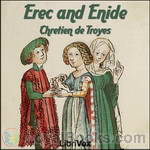 Erec and Enide
Erec and Enide
A medieval romance in which Erec goes through many trials until he is sure of Enide’s loyalty and true love | |
By: Carolyn Wells (1862-1942) | |
|---|---|
 The Jingle Book
The Jingle Book
A collection of silly poetry and limericks for children. | |
 Children of Our Town
Children of Our Town
| |
By: Voltairine de Cleyre (1866-1912) | |
|---|---|
 Selected Works: Poems
Selected Works: Poems
Voltairine de Cleyre (November 17, 1866 – June 20, 1912) was an American anarchist. She was skilled in many subjects and wrote essays, poems, letters, sketches, stories and speeches. These are her selected poems. | |
By: Lilian Gask | |
|---|---|
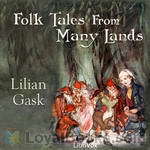 Folk Tales from Many Lands
Folk Tales from Many Lands
A collection of poetic folk tales from all over the world. (Kalynda) | |
By: Marianne Moore (1887-1972) | |
|---|---|
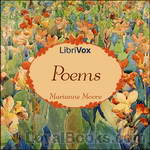 Poems
Poems
In 1921, American poet H.D. collected and published a selection of previously published poems by Marianne Moore. Although this angered Moore, as it was entirely unauthorized, she later accepted the edition as well made and used it as the basis for her own 1924 publication of Obersvations. Moore’s unique poetry matches the experimentation underway during the American Modernist movement. Much of it incorporates seemingly out-of-place quotations into complex free verse that often uses Nature as a subject matter... | |
By: D. H. Lawrence (1885-1930) | |
|---|---|
 Look! We Have Come Through!
Look! We Have Come Through!
| |
 New Poems
New Poems
| |
 Bay A Book of Poems
Bay A Book of Poems
| |
By: Ring Lardner (1885-1933) | |
|---|---|
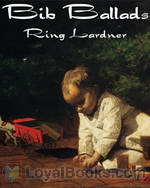 Bib Ballads
Bib Ballads
Ring Lardner is a typical parent when his first child is born, full of wonder and the rest of the usual emotions as he watches his little son grow. He wrote a series of 29 short poems on various facets of parenthood. | |
By: Robert Browning (1812-1889) | |
|---|---|
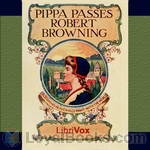 Pippa Passes
Pippa Passes
Pippa Passes was a dramatic piece, as much play as poetry, by Robert Browning published in 1841 as the first volume of his Bells and Pomegranates series. The author described the work as the first of a series of dramatic pieces. His original idea was of a young, innocent girl, moving unblemished through the crime-ridden neighbourhoods of Asolo. The work caused outrage when it was first published, due to the matter-of-fact portrayals of many of the area’s more disreputable characters – notably the adulterous Ottima – and for its frankness on sexual matters... | |
 Browning's Shorter Poems
Browning's Shorter Poems
| |
 Christmas Eve
Christmas Eve
| |
 Men and Women
Men and Women
| |
By: George Meredith (1828-1909) | |
|---|---|
 Poems
Poems
| |
By: Titus Lucretius Carus (94? BC - 49? BC) | |
|---|---|
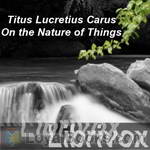 On the Nature of Things
On the Nature of Things
Written in the first century b.C., On the Nature of Things (in Latin, "De Rerum Natura") is a poem in six books that aims at explaining the Epicurean philosophy to the Roman audience. Among digressions about the importance of philosophy in men's life and praises of Epicurus, Lucretius created a solid treatise on the atomic theory, the falseness of religion and many kinds of natural phenomena. With no harm to his philosophical scope, the author composed a didactic poem of epic flavor, of which the imagery and style are highly praised. | |
By: Clinton Scollard (1860-1932) | |
|---|---|
 Sprays of Shamrock
Sprays of Shamrock
| |
By: Andrew B. Paterson | |
|---|---|
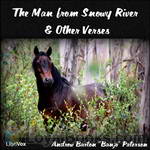 The Man from Snowy River and other Verses
The Man from Snowy River and other Verses
A collection of poems by Australian poet Andrew Barton ‘Banjo’ Paterson, picturesque glimpses into life in the Bush. From the preface: “A number of these verses are now published for the first time, most of the others were written for and appeared in ‘The Bulletin’ (Sydney, N.S.W.), and are therefore already widely known to readers in Australasia.” | |
By: Edith Nesbit (1858-1924) | |
|---|---|
 Rainbow and the Rose
Rainbow and the Rose
A collection of poetry in the whimsical style of Edith Nesbit, author of "The Five Children and It" and "The Railway Children". These poems are primarily for adults, although a few are written for her daughters. The majority are philosophical reflections on Edith Nesbit's life as a wife and mother, and theological reflections on Christianity and faith, the nature of the world, life and death. | |
By: Edmund Gosse (1849-1928) | |
|---|---|
 Victorian Songs Lyrics of the Affections and Nature
Victorian Songs Lyrics of the Affections and Nature
| |
 Some Diversions of a Man of Letters
Some Diversions of a Man of Letters
| |
By: Lord George Gordon Byron | |
|---|---|
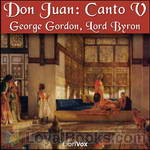 Don Juan, Canto V
Don Juan, Canto V
Juan, captured by Turkish pirates and sold into slavery is bought by a beautiful Princess as her toy-boy. Dressed as an odalisque, he is smuggled into the Sultan’s harem for a steamy assignation. Unbelievably, Byron’s publisher almost baulked at this feast of allusive irony, blasphemy (mild), calumny, scorn, lesse-majeste, cross-dressing, bestiality, assassination, circumcision and dwarf-tossing. This was the last Canto published by the stuffy John Murray (who had, however, made a tidy fortune on the earlier parts of the Epic)... | |
 Lara, A Tale
Lara, A Tale
This powerful poem narrates the fateful return of Count Lara to the British Isles after spending years abroad traveling the orient.Returning to his patrimony with a retinue consisting of one foreign-born page, Count Lara resumes the management of his landed estates. Lara's first efforts are crowned with success: only to be undermined by the jealousy and envy of his his peers. After a successful duel to defend his honour, the count becomes inexorably caught up in local blood-feuds; which quickly escalate to open warfare between his own followers and the private armies of his enemies... | |
By: Quintus H. H. Flaccus | |
|---|---|
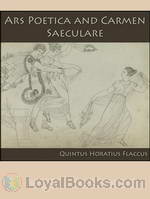 Ars Poetica and Carmen Saeculare
Ars Poetica and Carmen Saeculare
The Ars Poetica, by Horace, also known as Epistula ad Pisones, is a treatise on poetry written in the form of a letter, and published around 18 B.C. In it, Horace defines and exemplifies the nature, scope and correct way of writing poetry. This work, inspired by the book of the same name by Aristotle, is one of the most influential in Latin literature, and the source of famous concepts in poetics, such as “in medias res” and “ut pictura poesis”. The text itself is a poem in 476 dactilic hexameters... | |
By: James Whitcomb Riley (1849-1916) | |
|---|---|
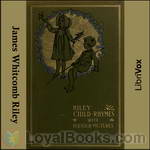 Selected Riley Child-Rhymes
Selected Riley Child-Rhymes
Riley was an American writer known as the “Hoosier poet”, and made a start writing newspaper verse in Hoosier dialect for the Indianapolis Journal in 1875. His favorite authors were Burns and Dickens. This collection of poems is a romanticized and mostly boy-centered paean to a 19th century rural American owning-class childhood. I’ve included the pieces I did because they’re the ones I most enjoyed when I read a copy of the collection handed down from my great-grandfather. | |
 A Defective Santa Claus
A Defective Santa Claus
| |
 Scrawl
Scrawl
James Whitcomb Riley was an American writer, poet, and best selling author, born in the town of Greenfield, Indiana. During his lifetime he was known as the "Hoosier Poet" and "Children's Poet" for his dialect works and his children's poetry respectively. His poems tended to be humorous or sentimental, and of the approximately one thousand poems that Riley authored, the majority are in dialect. | |
 An Old Sweetheart of Mine
An Old Sweetheart of Mine
| |
 In The Dark
In The Dark
James Whitcomb Riley was an American writer, poet, and best-selling author. During his lifetime he was known as the "Hoosier Poet" and "Children's Poet" for his dialect works and his children's poetry respectively. His poems tended to be humorous or sentimental, and of the approximately one thousand poems that Riley authored, the majority are in dialect. Riley began his career writing verses as a sign maker and submitting poetry to newspapers. Thanks in part to an endorsement from poet Henry Wadsworth Longfellow, he eventually earned successive jobs at Indiana newspaper publishers during the latter 1870s... | |